What is testosterone?
Testosterone is one of a few different “male hormones” or what doctors call “androgens.” Testosterone is the most important androgen that men make. It helps with muscle strength, sex drive, and bone strength.
What is low testosterone in men?
Low testosterone is when the body makes too little testosterone. The medical term for this is “androgen deficiency,” but many people call it just “low T.” As men get older, it is normal for levels of testosterone to get a bit lower. But when the levels of testosterone get too low, men can have symptoms.
What are the symptoms of low T?
The symptoms are different depending on how long a man has had low T.
At first, men with low T:
●Feel tired, especially at the end of the day
●Have little or no interest in sex (also called “low libido”)
●Feel sad, down, or depressed
After a year or more of having low T, men develop other symptoms or medical problems, including:
●Loss of muscle
●Loss of bone strength
●Loss of facial or body hair
●Growing breasts (also called “gynecomastia”)
What causes low T in men?
Low T in men can be caused by:
●Normal aging
●Injury or infection affecting the testicles (which make most of the testosterone in men)
●Certain treatments for cancer, including radiation, chemotherapy, and hormone therapy for prostate cancer
●Disorders that affect the pituitary gland, a gland at the base of the brain that controls all hormone-producing organs
●Other medical problems, such as liver and kidney disease, obesity, diabetes, and AIDS
●Other rare genetic problems
Should I see a doctor or nurse?
Yes, if you have symptoms of low T, see your doctor or nurse. There are many things that can cause those symptoms. Your doctor or nurse can try to find out what might be causing them. A blood test can show whether you have low T, but you might not need that test if something else is causing your symptoms.
How is low testosterone in men treated?
Low testosterone can be treated with testosterone replacement, which comes in shots, patches, gels, and tablets you put on your gums. But low testosterone is not always treated, especially in men older than 60. That’s because it’s normal for testosterone to drop in men as they age. In fact, normal aging causes some of the same changes that happen in men with low testosterone, such as less energy or interest in sex.
Experts are worried that testosterone treatments might increase the risk of heart attacks and strokes in some men. This has not been proven, but doctors are careful about when to suggest testosterone, especially in older men.
Men older than 60 might have testosterone replacement if:
●At least 2 or 3 blood tests show very low testosterone
●They have symptoms of low testosterone that bother them
●The symptoms are not caused by another disease or condition that doctors can treat
●They have not had a heart attack or stroke
Older men who have testosterone replacement need regular screening tests for prostate cancer.

